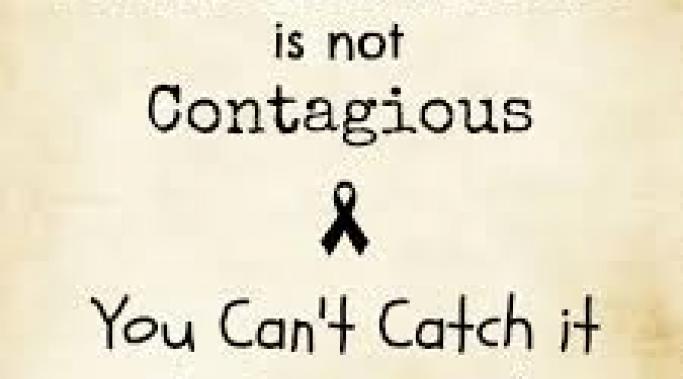Blogs
If you've ever been depressed, anxious or angry you know how emotions can impact your appetite. Any one of those experiences can make you eat more or less depending on the day and the intensity of what you're feeling. And then what happens? If you skip some meals or binge on junk food, do you feel better or worse?
If it had been just me, I probably could have ignored it. But it wasn't just me. During one of my many psychiatric hospitalizations, I observed what I believed was a systematic pattern of abuse of restraints. Patients were often restrained without the least restrictive means being tried and without a doctor's order or evaluation. They were often restrained for up to an hour, even if they were out of danger. I knew this was illegal. But how was I supposed to fight back?
Did you know that Socrates suffered from agoraphobia? Did you know that Kim Kardashian is credited with inventing narcissism? Did you know that Nostradamus committed suicide on Easter just so he could get credit for predicting the day of his own death?
If you said, “Yes” to any or all of these statements you might want to consider your sources because they are absolutely not true. (Paris Hilton invented narcissism.)
The world of mental illness is a quagmire of myths, misperceptions, and odd facts. So, instead of our regular cerebral deconstruction of themes relevant to the mental health community, let’s have a little fun and examine some of them.
Last year, NAMI interviewed me for a story about my family's experience with mental illness. In it, Jessica Edwards asked me about emotional survival, along with other lessons in our story so far. This is an excerpt from the interview, reprinted here because people have told me they found comfort in its advice.
A Family's Journey with Schizophrenia
NAMI: You discuss some really painful and difficult times in your story. What was the key thing that got you through those struggles?
Kaye: These two mantras helped me a tremendous amount. They remind me to stay grateful in the moment, and stay in a place of acceptance and hope:
It is what it is, now what? - and
Whatever happens, we’ll handle it somehow.
It's all fine and good to sit here and preach about the evils of mental health stigma. I'm proud of the work I have done and plan to continue to do. But let me be honest for a second here; even I stigmatize against people with a mental illness. I don't mean to of course, and always try to correct my thinking, but it happens.
How does a person know which type of bipolar disorder therapy will work best for him or her? As a psychology student, I learned about the different types of therapy available to patients with various mental illnesses. I learned about their history, how they were developed and their classifications. As a patient with bipolar II and obsessive-compulsive disorder though, my therapists never explained what specific type of therapy they practiced and why one type of therapy might work better than another for me (Types of Bipolar Therapy and How Bipolar Therapy Helps).
How do you rebuild an identity outside of your eating disorder behaviors once you embark on the recovery process? Giving up eating disorder behaviors can be daunting at first, because with time, they become an integral part of one’s identity and personality. In my case, it was so engrained, that at the time, stopping them, even when I wanted to, seemed like an impossible task. Here are a few helpful tips and words of wisdom which I’ve gathered along the way in my journey.
I remember the first time I was told I had bipolar disorder. I was twelve years old and confused. I was further baffled when my psychiatrist told me I would need to start taking psychiatric medication. I asked her what kind. I was certain that one pill--similar to the vitamins ground in my cereal each morning when I refused to swallow them--would be the same. I was told, in no uncertain terms, that it would be wonderful (!) if the first bipolar medication worked. Of course, it did not, and it does not for most of us.
Yesterday, I had the good fortune to be able to volunteer with the Special Olympics in Maryland. It was a great day where I was able to do a bunch of different physical therapy related skills with some really fantastic Special Olympic athletes. So, overall, the day was really great, and it also posed some challenges for me. The number one challenge? Managing a crowd. How do we adults find a balance between doing our duties (in my case, volunteering effectively) while the possibility for becoming crowd-induced-hyperactive is looming in the background?
Depression often leads to thoughts of suicide, or in the most dire of cases, taking one’s own life.
Around this time last year, in April of 2012, just as I was coming out of my last major depressive episode, I actually considered suicide. I didn’t just think about it, as in, “I wonder what would happen if I drive my car off this cliff,” but I actually contemplated a viable method and a plan to make it happen. Now, some people would think that the car/cliff thought was, in and of itself, a cry of desperation. For me, going that next step beyond pondering to planning, was the very lowest of all my very low moments.








